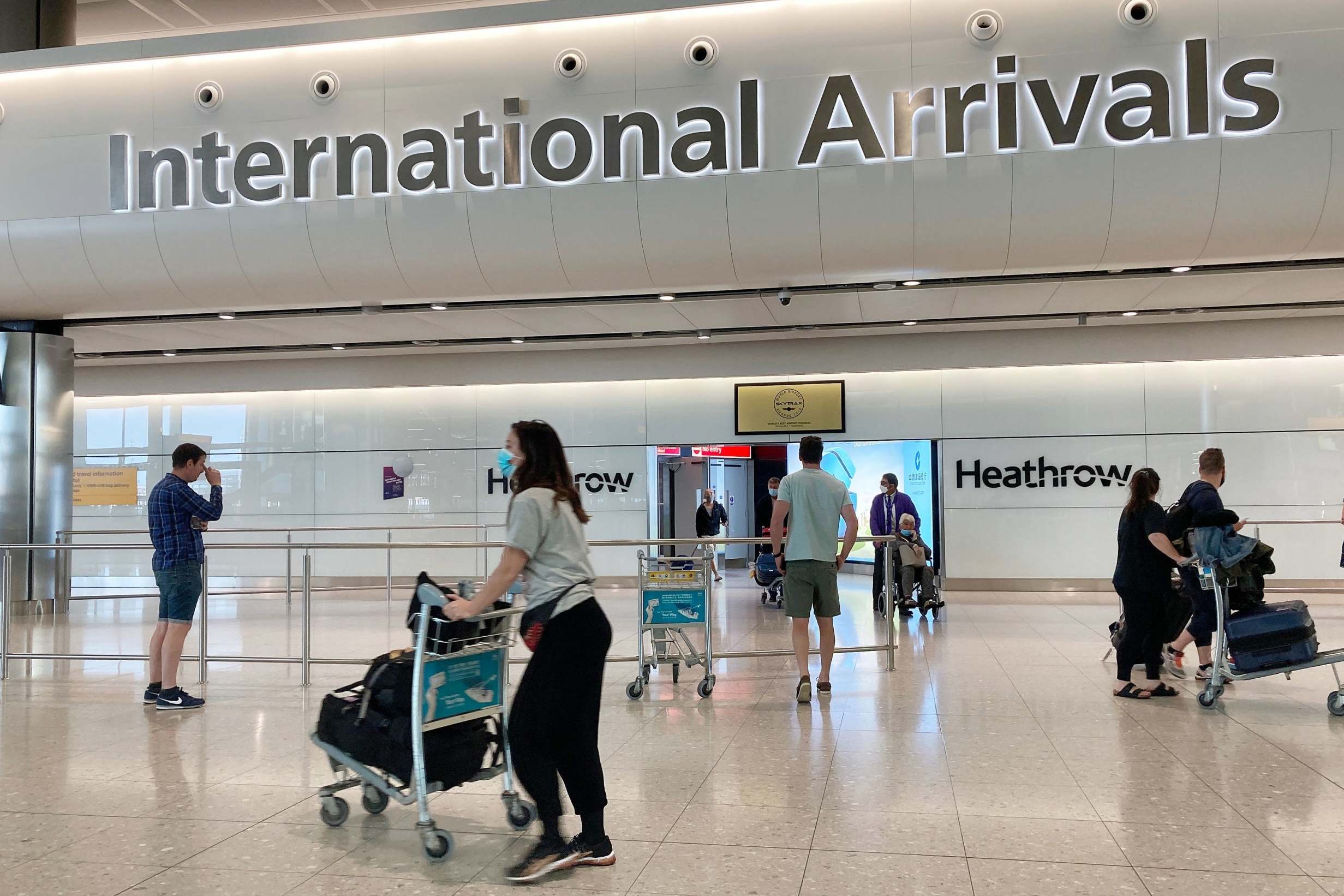This website uses cookies so that we can provide you with the best user experience possible. Cookie information is stored in your browser and performs functions such as recognising you when you return to our website and helping our team to understand which sections of the website you find most interesting and useful.

The government has finally revealed its list of 59 countries where travel restrictions will no longer apply, including France, Spain and Italy.
Previously, a “double lock” prevented nearly all international travel: the Foreign Office (FCO) advised against all non-essential travel abroad, invalidating Britons’ travel insurance, and a mandatory 14-day quarantine period was imposed on all inbound arrivals to the UK.
However, from 10 July these restrictions will be lifted for those travelling between England and the destinations given the green light.
Information for travel into Scotland, Wales and Northern Ireland will be published by the Devolved Administrations “in due course”, according to the government.
Most countries that were expected to be included have made the cut, such as Turkey, Croatia and Germany, while other popular holiday destinations are notably absent, including Portugal.
Meanwhile, Greece is on the list of approved countries, despite the Transport Secretary Grant Shapps telling the BBC's Today programme this morning that the country wouldn’t be included until there was a reciprocal agreement in place.
“Greece won’t be on the list, in the first place because Greece have said on 15 July, that’s their next review of their own systems, and Greece will be in the reciprocal category,” he said.
The new “travel corridors” mean those travelling from approved countries into England will no longer have to self-isolate unless “they have visited or stopped in any other country or territory in the preceding 14 days.”
Those who have stopped off in a country not on the list will still be required to self-isolate for two weeks when they get to the UK.
All inbound travellers, whether visitors or UK residents, must provide a passenger locator form before their arrival into the country.
The measure is not necessarily reciprocal; for example, although travellers won’t have to self-isolate when returning from New Zealand, when they get there they will find strict quarantine rules are still in place.
Here is the full list of countries exempt from quarantine on arrival into England:
- Andorra
- Antigua and Barbuda
- Australia
- Aruba
- Austria
- Bahamas
- Barbados
- Belgium
- Bonaire, Sint Eustatius and Saba
- Croatia
- Curaçao
- Cyprus
- Czech Republic
- Denmark
- Dominica
- Faroe Islands
- Fiji
- Finland
- France
- French Polynesia
- Germany
- Greece
- Greenland
- Grenada
- Guadeloupe
- Hong Kong
- Hungary
- Iceland
- Italy
- Jamaica
- Japan
- Liechtenstein
- Lithuania
- Luxembourg
- Macau
- Malta
- Mauritius
- Monaco
- Netherlands
- New Caledonia
- New Zealand
- Norway
- Poland
- Réunion
- San Marino
- Serbia
- Seychelles
- South Korea
- Spain
- St Barthélemy
- St Kitts and Nevis
- St Lucia
- St Pierre and Miquelon
- Switzerland
- Taiwan
- Trinidad and Tobago
- Turkey
- Vatican City
- Vietnam
Ireland is already exempt as part of the common travel area, as are the Channel Islands and the Isle of Man. The government has said that 14 British Overseas Territories will also be exempt.
The list could still change, as the government website states that countries “may be added to over the coming days following further discussions between the UK and international partners”.
Countries and territories could also be removed from exemption if “conditions worsen”.



 Africana55 Radio
Africana55 Radio 

